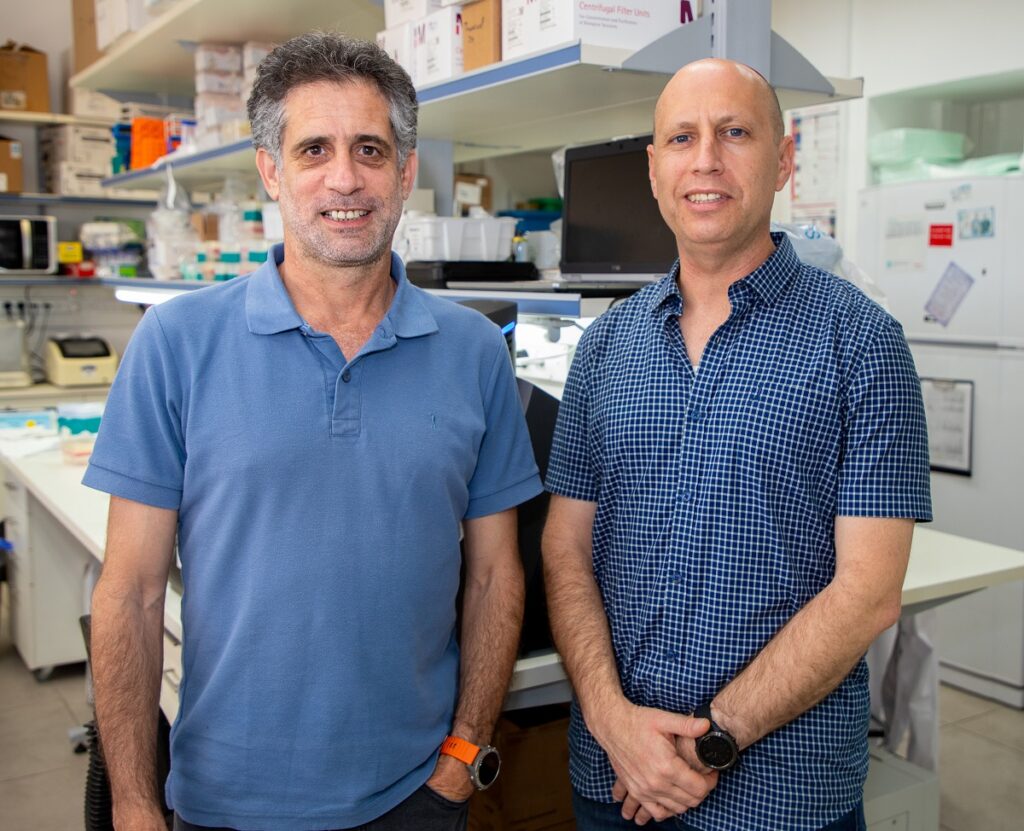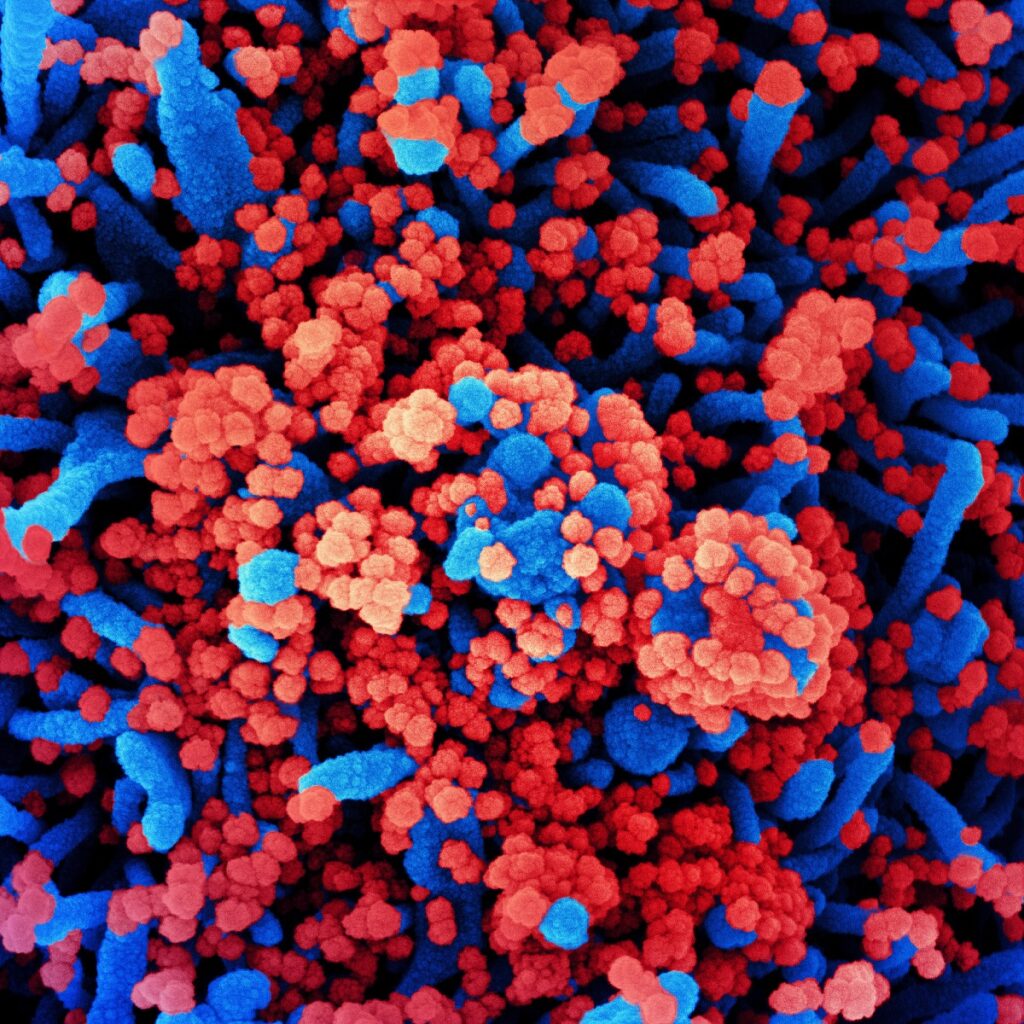Patients who are severely ill with COVID-19, the disease caused by the novel coronavirus, develop antibodies to the illness at a faster rate than those with a mild case of the disease, according to a study conducted by Israeli researchers from Tel Aviv University and the Sharon hospital at Rabin Medical Center in Petah Tikva (also known as Beilinson Hospital).
Researchers who contributed to this study believe it has important implications for understanding a patient’s immune response to the SARS-CoV-2 viral strain and potentially indicates that the immune system is more “hyperactive,” says Professor Ariel Munitz of the Department of Microbiology and Clinical Immunology at Tel Aviv University’s Sackler School of Medicine. Further investigation of this hypothesis is needed on the matter, he tells NoCamels.
Munitz, who led the study with Prof. Motti Gerlic of the same department, also found that the results are significant for future tracking of the effectiveness of vaccines as well as serological tests (antibody tests) designed to estimate the percentage of the population previously infected with the virus – information which is necessary to protect public health.
In the study, the scientists applied an innovative antibody test to about 70 COVID-19 patients at the Sharon Hospital. They examined the development of antibodies targeting two different viral proteins in the patients’ bodies and found that severely ill patients developed antibodies faster.
“Many attempts have been made to try and explain why patients become severe. Some [researchers] have even think it’s because the severely ill patients don’t develop antibodies fast enough. But they do,” Prof. Ariel Munitz tells NoCamels, “This study shows that.”

Prof. Gerlic detailed the study in an announcement from Tel Aviv University released this week.
“We measured the levels of antibodies in the patients’ blood when they arrived at the hospital, during the period of hospitalization and after their release,” he explained in the statement. “We tried to understand whether the level of antibodies in their blood corresponded in any way to the severity of the illness, whether the antibodies developed in a similar way in all patients, and whether they remained in the blood for long periods of time – a critical factor for the ‘herd immunity’ we all wish to attain,”
Prof. Gerlic said that about 50 days after the initial appearance of symptoms, at later stages of the disease, a significant decline occurred in the presence of antibodies types IgM and IgA, regardless of the severity of the illness. In IgG-type antibodies, on the other hand, the researchers observed only a slight decrease, even in mildly ill patients.
IgG antibodies play an extremely important in the immune response because they can neutralize the protein that binds the virus to human cells to enable contagion and prevent the virus from penetrating the cells, Prof. Gerlic said.
“We have not yet examined how the antibody actually works, and we do not know whether or not it neutralizes the virus, but the facts that these antibodies are quickly produced in all patients, and stay in the blood for a long time, suggest that they provide some level of immunity,” he added.
The researchers found that IgG-type antibodies remain in the body for two months. They will continue to monitor the patients for another year, to find out how long the antibodies remain in their bodies.
Despite the rapid production of antibodies in severely ill patients, ultimately all patients exhibited a similar immune response, according to the study. In other words, patients with mild, moderate, and severe COVID-19 all eventually developed the same level of antibodies, Prof. Munitz explains.
Sign up for our free weekly newsletter
SubscribeIn the future “we would like to see the antibodies stay stable and neutralize the illness,” Prof. Munitz tells NoCamels, noting this will require further research.
A tool for diagnostics
Serological tests are seen as a key element in finding out who already had the disease to better understand its spread and prevent a potentially detrimental second outbreak.
In their study, the TAU researchers used a new serological test developed in their own laboratory. Test results only take one hour, Prof. Munitz says.
“We believe our assay is one of the most sensitive and rapid ones available,” he tells NoCamels.
Munitz also said this is the first time that anyone has produced a single antibody test that can spot all three antibodies that counter the virus.
The IDF’s Medical Corps has already used the serological test developed by Prof. Gerlic and Prof. Munitz to detect COVID-19 antibodies in the blood of IDF soldiers, according to the TAU statement.
SEE ALSO: Israeli Bio-Defense Lab Says It Found An Antibody That ‘Neutralizes’ The Coronavirus
Within the next few weeks the test will be sent to the Israel’s Ministry of Health for validation, so that it may be used in population surveys.
Last month, the Health Ministry began testing some 70,000 Israelis to see if they have produced coronavirus antibodies. Blood samples to test for antibodies, taken randomly from those already having blood tests in clinics, began at the end of June.
Related posts

Israeli Medical Technologies That Could Change The World

Harnessing Our Own Bodies For Side Effect-Free Weight Loss

Missing Protein Could Unlock Treatment For Aggressive Lung Cancer




Facebook comments